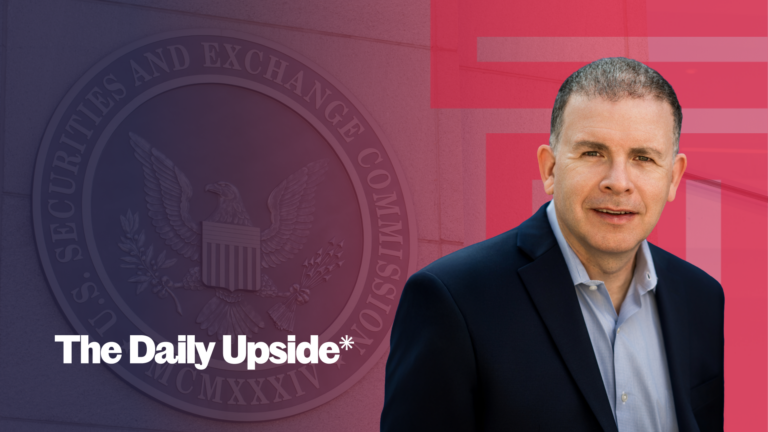CM Law Partner Jonathan Scott recently authored an article that answers the question “what happens when the SEC calls?”
The U.S. Securities & Exchange Commission has broad and nationwide authority to seek documents and information from U.S. companies. Often such requests are directed at public companies or other regulated and unregulated securities market participants. But even companies that are not under investigation and have no direct involvement with the U.S. securities markets commonly receive SEC requests for information. Here are a few important things for companies and their in-house counsel to keep in mind when they receive requests from the from the SEC, especially if they have had no experience engaging with the agency.
1. Why might the SEC staff contact a company or individual that isn’t under investigation? There are a variety of reasons staff from the SEC’s Division of Enforcement may reach out to companies and individuals, including those that it does not directly regulate and that are not subjects of its investigation. For example, the SEC staff commonly reaches out to companies that are customers, suppliers, or service providers to a party under investigation to obtain relevant documents or information. In other instances, SEC staff may seek information about a specific company employee implicated in wrongdoing, including items such as the employee’s electronic communications, telephone and internet history, personnel records or banking information.
2. How will the SEC reach out and how should companies prepare? Especially in early stages of an inquiry or investigation, staff members from the SEC’s Division of Enforcement may cold call witnesses, including company employees, particularly if they want to catch witnesses by surprise. In other instances, the staff will first send an email or letter seeking voluntary cooperation. And when one or more parties in the investigation will not — or legally or contractually cannot — provide information voluntarily, the SEC staff will typically ask the SEC commissioners to issue a “Formal Order of Investigation,” which permits the staff to issues subpoenas. Regardless of how the SEC reaches out, any request from the SEC must be treated seriously.
Companies that may receive outreach from the SEC or other government agencies can take steps to be prepared. This means informing employees that if they receive outreach from the government about the company, they should offer to take down the investigator’s name and contact information, and then pass the information on to company counsel, rather than trying to respond themselves. But it is important to seek advice from counsel on how such guidance is worded and communicated to employees. In particular, companies must be cognizant of SEC Rule 21F-17(a), a whistleblower protection law, which provides for penalties against any person (including any company, regardless whether it is public or private) that takes any action to impede individuals from communicating with the SEC concerning a possible securities law violation.
3. Do companies and individuals have to respond to SEC requests? Recipients of voluntary requests do not have to respond, but it is almost always wise to do so, particularly because it is quite easy for SEC staff to obtain subpoena authority to force a response if needed. If the SEC does issue a subpoena, responding is no longer voluntary. If a party refuses to respond to a subpoena, the SEC can file a civil action in U.S. District Court to enforce compliance (which makes an otherwise private matter, public) and courts will generally rule in the SEC’s favor.
But in responding to an SEC request, parties can still negotiate the request’s scope and deadlines, and take steps to protect privileged or confidential materials. SEC requests and subpoenas commonly seek very large volumes of documents and provide a deadline of as little as two to three weeks. Nevertheless, in many instances the staff will consider requests for more time to respond, will allow parties to produce documents on a rolling basis as they become available, and will agree to narrow the response to documents that seem most relevant to the investigation. Parties can also assert attorney-client or other applicable privileges to withhold production. And particularly if the documents contain trade secrets or other confidential information, parties have the right to seek “confidential treatment” and be notified in event the materials are subject to a third-party Freedom of Information Act request.
4. What legal rights do companies have when they hear from the SEC? Recipients of SEC requests have the right to retain counsel to represent them in the matter. In addition, individuals have rights under the Fifth Amendment to avoid providing information that “may tend to incriminate” them. When the SEC seeks information either voluntarily or under subpoena, the SEC staff should provide the recipient with an SEC Form 1662 which outlines these rights and also explains how the SEC will use and store information it gathers. Form 1662 also warns recipients of the consequences of lying to the SEC or obstructing its investigation and explains how the SEC may use and share information with other agencies, including criminal prosecutors. If the SEC’s investigation has progressed to the formal stage, a subpoena recipient may also request a copy of the formal order of investigation, which provides some additional information about the scope of the matter.
5. Does the SEC, and should companies, publicly disclose an SEC request or subpoena? SEC inquiries and investigations are nonpublic and confidential. This means that, in most circumstances, the SEC will not publicly disclose the existence of the matter, or who it has contacted to obtain information, unless and until it files an action relating to the investigation in court.
Recipients of SEC requests are not obliged to keep the request or investigation confidential, but it is best practice to only share such information on a need-to-know basis. This may include notifying members of senior management and the company’s Board of Directors. It will also likely include looping in IT professionals to ensure that the entity and its employees are retaining responsive and relevant documents. And it may include interviewing employees who have relevant information. Companies should also research whether they have any contractual obligation (or it otherwise makes sense) to disclose an SEC request to any third party, such as an insurance carrier. In some instances, SEC staff may request that the company avoid disclosing the investigation to certain witnesses or potential wrongdoers. Companies will need to assess the specific facts and circumstances in deciding whether or how long to comply with such a request.
6. What are considerations when gathering information from employees to respond to an SEC information request or subpoena? While preparing its response to the SEC, the company should take steps to preserve any applicable attorney-client and work-product privilege claims. For example, ideally employee interviews are conducted by or under the supervision of either in-house or external counsel. Counsel should make a record that the interview’s purpose is to provide legal advice to the entity, particularly if the interview is conducted by in-house counsel. Companies should also consider whether providing contents of employee interviews to the SEC could be construed to waive privilege (the law on this issue may differ depending on jurisdiction).
At the beginning of any employee interview, the interview subject should be informed that the conversations are confidential and protected by the company’s privilege, but that company counsel does not represent the employee in their individual capacity and may choose to share interview contents with the government. In some instances, it may be appropriate to advise employees to retain their own counsel.
7. How important is it that companies and their counsel provide accurate information to the SEC? Accuracy is paramount when dealing with the SEC (or any government agency). Even a minor misstatement or omission can be interpreted as misleading, which can have significant consequences. While the SEC does not have authority to pursue perjury or obstruction of justice charges, it can make referrals to federal criminal authorities. It can also ban attorneys from working on SEC matters in the future or make referrals to state bars. To avoid this, it is essential to:
-
- Provide clear, complete, and factually accurate information to the SEC.
- Avoid speculation or assumptions unless explicitly noted.
- Promptly correct any inaccuracies if they arise.
- Maintain thorough documentation to support all disclosures.
The best way to keep a non-issue from becoming a major issue is to ensure that the SEC staff never feels misled — even unintentionally.
8. When should companies bring in outside counsel? If you or your company is contacted by the SEC, it is always appropriate and advisable to seek advice from counsel that is knowledgeable about SEC practice before providing any substantive response. This is true even for companies that are used to handling routine civil litigation subpoenas and requests in-house.
CM Law PLLC (cm.law) – formerly Culhane Meadows PLLC – is the largest full-service business law firm in the nation that is both women-owned and managed (WBE). Designed to provide experienced attorneys with an optimal way to practice sophisticated law while maintaining a superior work/life balance, the firm offers fully remote work options, a transparent, merit and math-based compensation structure, and a collaborative culture. Serving a diverse clientele—from individuals and small businesses to over 40 Fortune-ranked companies—CM Law is committed to delivering exceptional legal services across a broad spectrum of industries.
The foregoing content is for informational purposes only and should not be relied upon as legal advice. Federal, state, and local laws can change rapidly and, therefore, this content may become obsolete or outdated. Please consult with an attorney of your choice to ensure you obtain the most current and accurate counsel about your particular situation.





